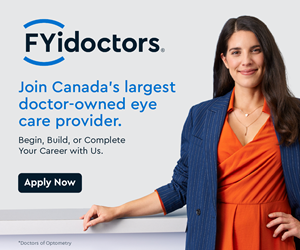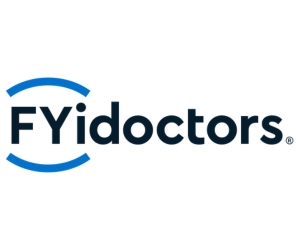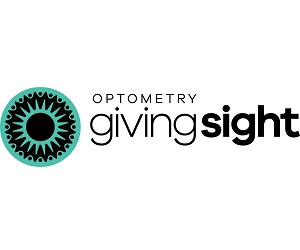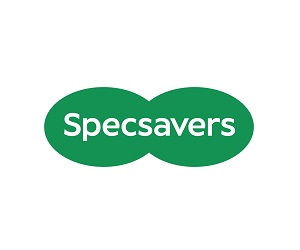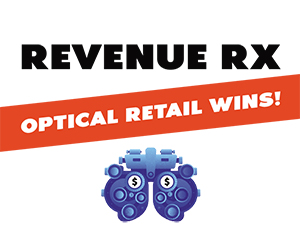Dr. Michael Nelson was born and raised in Wetaskiwin, Alberta
After graduation from UW School of Optometry in 1994 he completed a residency in family practice and low vision at the University of Alabama School of Optometry.
He was past president of the Manitoba Association of Optometrists and
current president of the Canadian Association of Optometrists.
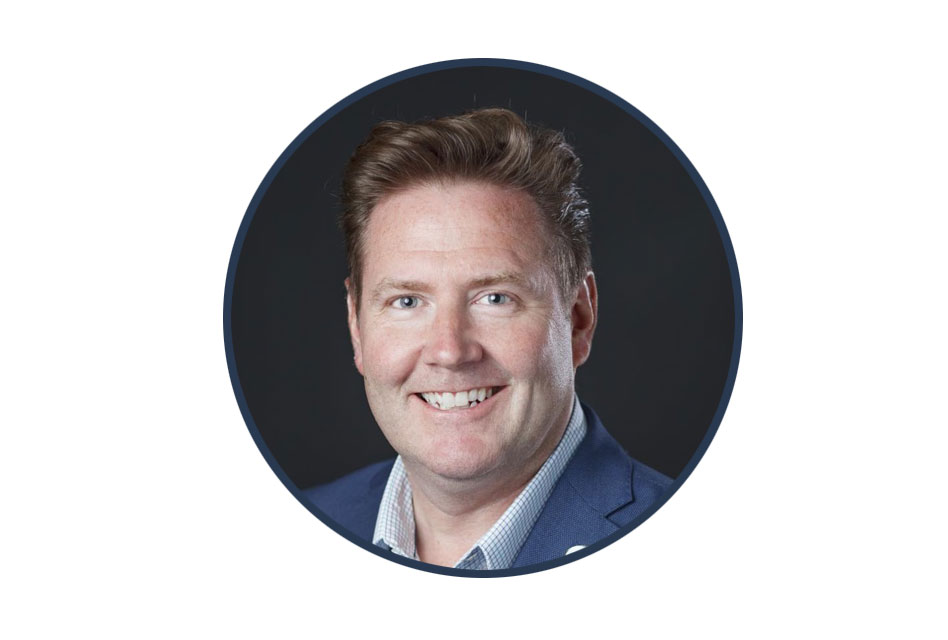
Dr. Michael Nelson
Doctorate of Optometry from the University Of Waterloo (1994)
Co-awarded the Manitoba Optometrist of the Year. (2014)
Current President of the Canadian Association of Optometrists (2019 – 2021)
Why did you choose your field?
I have a couple reasons.
I grew up on a hog farm in a small town in Alberta called Wetaskiwin. While I loved growing up on a farm one thing shoveling manure and castrating piglets taught me was that I wanted to be someone who grew up on a farm, not someone who lives on a farm. So I was highly motivated to find a professional career. My dad encouraged me and said that he didn’t care what I did but he hoped that I would one day become a doctor….be it an MD, PhD or, I guess, an OD.
If you ask most ODs why they became an OD, they often have an inspirational eye story; like I had really strong prescription and my OD helped me or something like that. Me, not so much, and it’s a little more superficial. In Wetaskiwin, the optometrist was a guy named Dr. Don Martin. If you ask anyone my age or older if they knew who Dr. Martin was, they would say yes because he was the most eligible bachelor in town for 2 reasons. He made a very good income and he looked exactly like Mel Gibson! I know Mel has had some PR issues lately but he was the Ryan Reynolds of the 80’s …..So, I thought, I got to be an eye doctor. LOL!
Where do you see your practice / eye care in 10 years?
I practice with my wife, Selena Friesen. There are lots of optometry couples but I think most of them don’t work in the same practice. We work hard at it and we have different strengths, so it has worked well. Selena is awesome at planning and this is one question she always asks me and I sometimes have trouble with it. In 10 years I know I will still be practicing and hopefully still trying to challenge myself. Our daughter is in optometry right now and I don’t know what her plans are but that would be interesting to practice with your kid.
What is currently the most exciting thing in your field to help patients?
Myopia control: The most common thing that optometrists deal with is refractive error. Optometrists are really good at prescribing for refractive error but we haven’t really had any options to affect it. Myopia control allows us the opportunity not only to correct refractive error, but also to slow it down that is an exciting thing.
What is something you have done in your practice to set you apart.
Primary Care: We do everything.
I know there is lots of talk of specialties in optometry and I think there is a place for that. It is great to be an expert in a particular area like VT or dry eye. However, sometimes, I hear optometrists say, “Oh, I only do this and so I don’t know how to do that anymore”, and it makes me a little sad.
I think all of us studied like crazy to learn everything there is about the eyes and visual a system, but nobody studies more about optics/vision/the visual system and eye disease than optometrists. There are some that know more about a specific topic like the glaucoma specialists that can tell you everything about glaucoma but they don’t feel comfortable talking about a retina problem.
There is something that I admire about an expert in generalities. Why can’t an OD be proficient in dry eye, vision therapy, scleral lenses, glaucoma…..you knew it all for your boards…so why can’t we keep that up? An optometrist that is an expert in everything impresses me. That is what I aspire to be; an expert generalist.
So along these lines I have a motto: Know the best. Recommend the Best. We try to pass that on to our patients. We try to tell them what is new in treatments, eye wear, contacts…etc.
What is your most effective marketing tool/platform?
Word of mouth….we always tell new staff or new students that come work with us that almost every single patient has come to see us because they feel some personal connection to us… perhaps from our street, sports teams, kid’s school, church, or golf course..
What is your favorite TV show / Netflix series?
Reality TV: I love reality TV! Survivor, Big Brother, Amazing Race.
Probably Survivor is my favourite…in all the years it has been on I don’t think Selena and I have missed an episode.
Last time you laughed?
I laugh all the time. I am not the class clown or the life of the party but I absolutely do not take things too seriously. In school, I think there was more than one occasion that teachers told me to stop smiling so much. I am thinking it made them think I was up to something.
Favourite past-time/hobby?
I really enjoy golf…just wish I was better at it.
YouTube. People sometimes talk about their COVID hobby, and since we didn’t stop working throughout the pandemic I always said I didn’t have one. One thing I did start during the pandemic was an optometry YouTube channel – Good Optometry Morning.
Tell me something few people know about you?
I am pretty sure I am one of the luckiest guys in the world.There are a couple of things a lot of people don’t know about me.
One I’m a cancer survivor. About 10 years ago I developed testicular cancer and went through chemotherapy. I don’t like to share a lot of personal stuff with people so some people still comment…hey remember that summer you shaved your head? I consider myself lucky because if someone was diagnosed with this is the 1980’s the 5 year survival rate was less than 5%…but now the 5 year survival rate is over 95%.
Another thing is that I have a rare eye condition called Birdshot Retinopathy… It is pretty rare…like maybe one in 30,000 have it. Many people that have this are really scared and confused about it but I’m lucky because I have trained for all my life to learn about the eyes and so I understand it better than most that have it. And, like testicular cancer, the prognosis with Birdshot used to be pretty grim, but with current treatments they are actually pretty good.
I mentioned earlier that many eye doctors talk about having an eye condition that inspired them to become an optometrist; I got an eye condition when was an eye doctor that inspired me to become a better optometrist.



